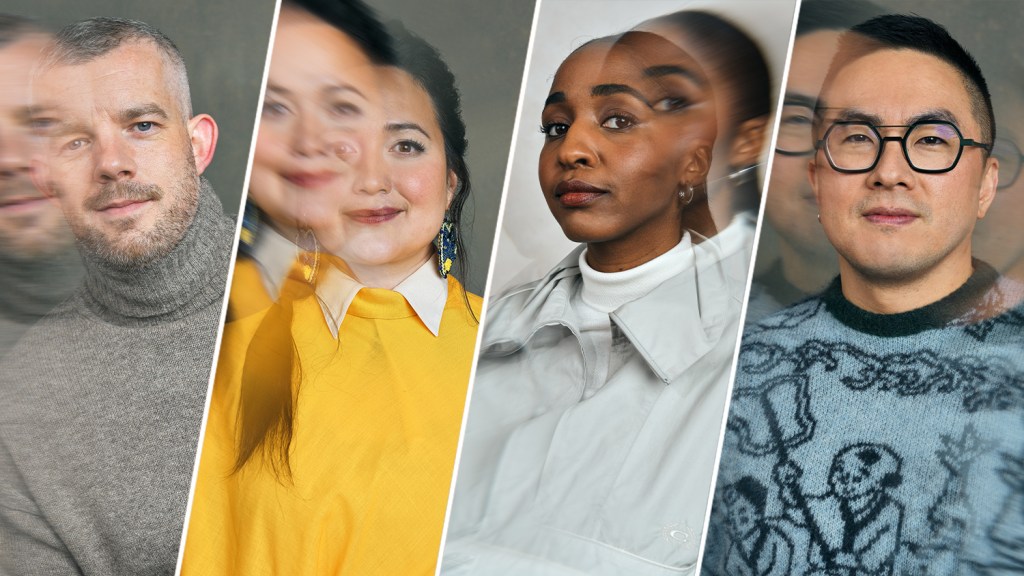Voices of Change: LGBTQ Representation Takes Center Stage at Sundance
This year’s Sundance Film Festival has emerged as a pivotal platform for advocating LGBTQ representation in the entertainment industry. Prominent figures, including Ayo Edebiri, Bowen Yang, and Lily Gladstone, have passionately highlighted the essential need for visibility and inclusion, especially amid a backdrop of evolving political climates. Their voices, along with many others, resonate with the ongoing struggle and triumphs of the LGBTQ community in the arts. This article delves into the significance of their messages and the broader implications for representation in film and television.
The Importance of LGBTQ Representation
LGBTQ representation in media is not merely a matter of visibility; it holds profound implications for societal acceptance and understanding. When diverse voices are showcased, they contribute to a richer, more nuanced narrative that reflects the complexity of human experiences. This is particularly crucial for marginalized communities, where misrepresentation can lead to harmful stereotypes and societal stigma.
At Sundance, discussions centered around how films and television series can serve as powerful tools for change. Ayo Edebiri, known for her role in “The Bear,” emphasized that representation is not just about having LGBTQ characters but about fleshing them out as real, relatable humans. “When we see ourselves on screen, it validates our existence,” she stated. Such sentiments echo the experiences of many viewers who often find solace and understanding in characters that reflect their own lives.
Shifting Narratives in Film
The narratives surrounding LGBTQ characters have evolved significantly over the years. Historically, these characters were often relegated to stereotypes or tragic storylines. However, the increasing presence of LGBTQ creators behind the camera is reshaping these narratives. Bowen Yang, a prominent comedian and actor, pointed out that representation extends beyond casting; it involves telling stories that resonate authentically with LGBTQ experiences.
- Authentic Storytelling: Films like “Moonlight” and “Pose” have set a precedent for authentic storytelling, showcasing the richness of LGBTQ lives.
- Diverse Perspectives: LGBTQ creators bring unique perspectives that can challenge norms and broaden the audience’s understanding of different lifestyles.
- Intersectionality: Many filmmakers are now exploring the intersectionality of identities, blending LGBTQ narratives with issues of race, class, and gender, creating a more comprehensive view of society.
Political Backdrop and Its Impact
The current political climate has placed LGBTQ rights at the forefront of societal discourse. With a rise in anti-LGBTQ legislation in various states, the urgency for representation has become even more pronounced. Lily Gladstone, an emerging star in the industry, voiced her concerns about the repercussions of political decisions on the LGBTQ community. “Art has a responsibility to reflect the truth of our times, and right now, that truth is painful for many,” she remarked.
As artists and storytellers, it is crucial to address these realities. The festival served as a reminder that while progress has been made, the fight for equality continues. The presence of LGBTQ filmmakers and actors at Sundance sends a strong message: that their stories matter and deserve to be told.
Building a Supportive Community
One of the remarkable aspects of the Sundance Film Festival is the sense of community it fosters among creators. LGBTQ filmmakers are not only given a platform to showcase their work but also the opportunity to connect with peers who share similar experiences. This sense of belonging is vital in an industry that can often feel isolating.
- Networking Opportunities: Events like Sundance provide networking opportunities for LGBTQ artists, helping them secure funding and distribution for their projects.
- Mentorship Programs: Many established LGBTQ filmmakers are taking it upon themselves to mentor emerging talents, ensuring that the next generation has the support they need.
- Collaborative Projects: Festivals like Sundance encourage collaborative projects among LGBTQ artists, fostering innovative storytelling that breaks conventional boundaries.
The Future of LGBTQ Representation
Looking ahead, the future of LGBTQ representation in film and television appears promising, albeit with challenges. As more creators from diverse backgrounds take the helm, audiences can anticipate a richer tapestry of stories that reflect the myriad experiences within the LGBTQ community. The voices of change echo through the halls of Sundance, but they must continue to resonate long after the festival concludes.
Moreover, the role of audiences cannot be overlooked. Support for LGBTQ films, whether through viewership or social media advocacy, plays a crucial part in driving change in the industry. Audiences are encouraged to actively seek out and support projects that prioritize authentic representation. This collective effort can influence studios to invest in diverse stories, ultimately leading to a more inclusive industry.
Conclusion: The Call to Action
As we reflect on the discussions and revelations from the Sundance Film Festival, it becomes clear that the journey towards equitable representation for the LGBTQ community is ongoing. The insights shared by figures like Ayo Edebiri, Bowen Yang, and Lily Gladstone serve as both a celebration of progress and a call to action. For the entertainment industry to thrive, it must embrace the full spectrum of human experience.
In a world where visibility can lead to acceptance and understanding, let us champion the voices of change. By advocating for authentic representation, supporting LGBTQ creators, and engaging with their stories, we can foster a future where everyone’s narrative is valued and celebrated. The stage is set, and the voices of change are ready to take center stage—let’s ensure they are heard.
See more CNET Live

